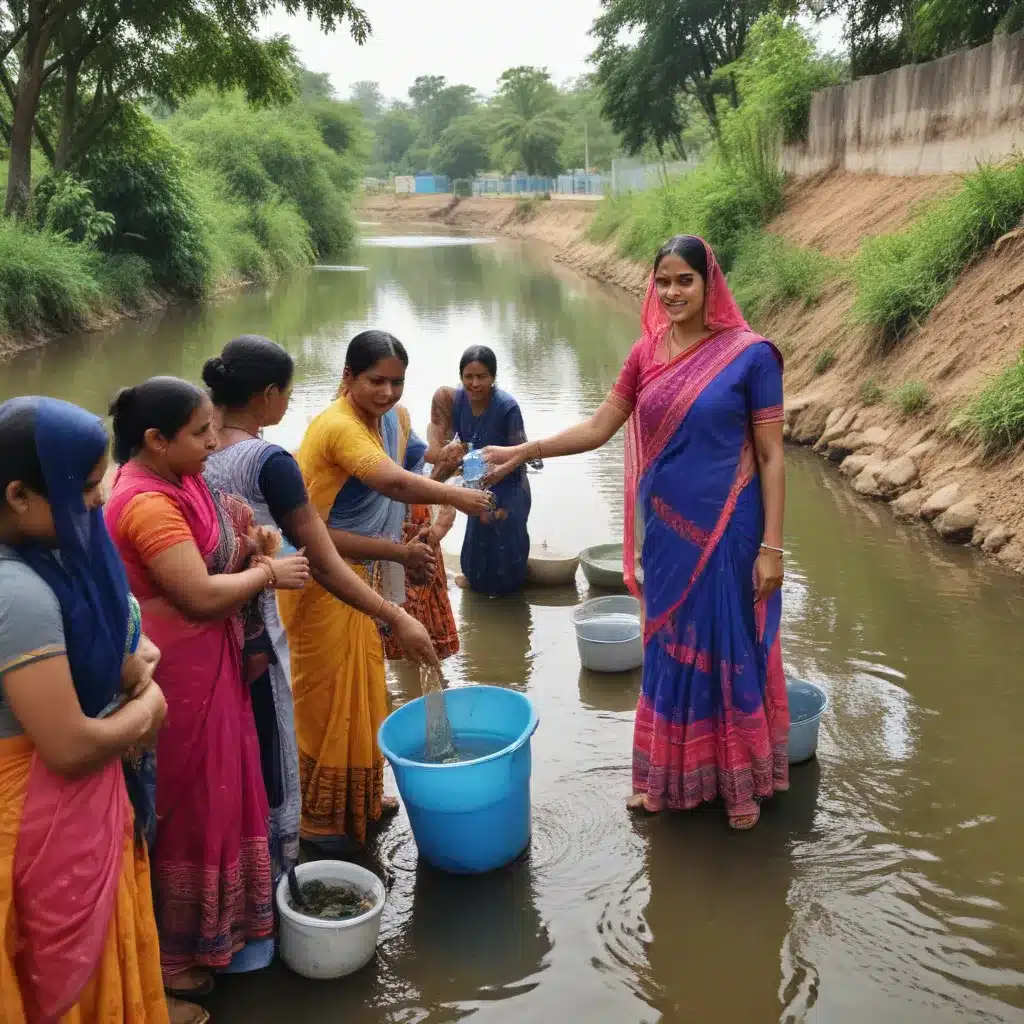
Transforming Water Management through Community Engagement
Access to clean water is a fundamental human right, yet communities worldwide continue to face daunting water-related challenges exacerbated by the impacts of climate change. Hyderabad, India’s thriving technology hub, is no exception. While the city has made strides in improving its water infrastructure, significant disparities exist in water quality and service delivery, disproportionately affecting women and vulnerable populations.
Uncovering the Water Crisis: Gendered Impacts and Community Resilience
Women in Hyderabad bear the brunt of the water crisis, often responsible for collecting, storing, and managing household water. As water sources become increasingly scarce or contaminated, women must travel longer distances, exposing them to greater risks of violence and health problems. Moreover, poor water quality can lead to waterborne diseases, malnutrition, and disruptions in menstrual health and hygiene – issues that predominantly impact women and girls.
Despite these challenges, Hyderabad’s women have demonstrated remarkable resilience, organizing community-led initiatives to address water scarcity and quality concerns. From establishing neighborhood water monitoring committees to advocating for policy reforms, these grassroots efforts have empowered women to become agents of change, leveraging their intimate knowledge of local water issues to drive sustainable solutions.
Empowering Women through Capacity Building and Advocacy
To amplify the impact of women-led initiatives, the Joint Action for Water (JAW) organization has implemented a multifaceted approach targeting capacity building and advocacy at the community level.
Strengthening Women’s Leadership in Water Management
JAW’s flagship program, “Women in Water,” provides comprehensive training and mentorship to equip women with the skills and confidence to lead water management initiatives in their communities. The program covers a range of topics, including water quality testing, infrastructure maintenance, and community mobilization strategies. By nurturing women’s technical expertise and leadership abilities, the program has enabled participants to take on decision-making roles in local water committees and collaborate with municipal authorities to address pressing water challenges.
| Program Highlights | Impact |
|---|---|
|
– 6-month intensive training on water management, advocacy, and community mobilization – Mentorship from experienced water professionals – Opportunities for hands-on water quality monitoring and infrastructure maintenance – Networking and knowledge-sharing with a cohort of women leaders |
– Over 400 women trained as “Water Champions” in Hyderabad’s low-income communities – 78% of participants reporting increased confidence and decision-making power in local water governance – 85% of trained women leading community-based water monitoring and advocacy initiatives |
Advocating for Inclusive Water Policies
In parallel with capacity-building efforts, JAW collaborates with women-led civil society organizations to amplify the voices of marginalized communities in Hyderabad’s water policy discussions. Through a series of public forums, JAW facilitates dialogues between community members, policymakers, and water utility providers, ensuring that the unique needs and perspectives of women are integrated into water management strategies.
These advocacy initiatives have yielded tangible results, with the municipal government incorporating women’s input into the city’s new Water Quality Improvement Plan. The plan mandates that at least 40% of water monitoring committees be composed of women, guaranteeing their meaningful participation in decision-making processes.
Fostering Sustainable and Equitable Water Solutions
By empowering women as leaders and advocates, JAW’s multifaceted approach has catalyzed a paradigm shift in Hyderabad’s water sector. Women-led initiatives have not only improved water quality and access but have also cultivated a sense of community ownership and shared responsibility for water resources.
Innovative Water Monitoring and Conservation Efforts
Equipped with the skills and knowledge gained through the “Women in Water” program, community members have established neighborhood-based water quality monitoring systems. Using simple testing kits, these “Water Guardians” regularly assess the safety and potability of their local water sources, promptly reporting any issues to the municipal authorities.
Moreover, women-led water conservation initiatives have demonstrated the power of collective action. In one community, a group of women organized a rainwater harvesting project, constructing rooftop collection systems and diverting excess water to recharge groundwater aquifers. This innovative approach not only increased water availability but also reduced the burden on women responsible for water collection.
Empowering Women, Transforming Communities
The ripple effects of JAW’s work extend beyond the water sector, fostering holistic community development and empowerment. By elevating women’s leadership, the organization has challenged gender stereotypes and inspired young girls to pursue careers in water management, engineering, and environmental sciences.
Furthermore, the increased decision-making power and financial autonomy of women in water-related initiatives have led to improvements in household nutrition, healthcare, and overall well-being. As women gain a stronger voice in community affairs, they are better positioned to advocate for their families’ needs and champion sustainable development goals.
Scaling Impact through Collaboration and Knowledge Sharing
JAW’s success in Hyderabad has garnered national and global recognition, inspiring other communities to replicate its women-centric approach to water management. The organization has actively engaged with policymakers, development agencies, and civil society groups to share its learnings and advocate for the integration of gender-responsive strategies in water governance.
Through its partnership with the Joint Action for Water alliance, JAW has leveraged cross-regional knowledge exchange and funding opportunities to scale its impact. By fostering a network of community-based water organizations, the alliance has facilitated the replication of successful models, enabling women leaders from diverse contexts to learn from one another and adapt proven strategies to their local needs.
As the world grapples with the mounting challenges of climate change and resource scarcity, the story of Hyderabad’s women water champions serves as a powerful testament to the transformative potential of community-driven, gender-inclusive solutions. By empowering women as agents of change, JAW has demonstrated that sustainable water management is not only possible but also essential for building resilient and equitable communities.

